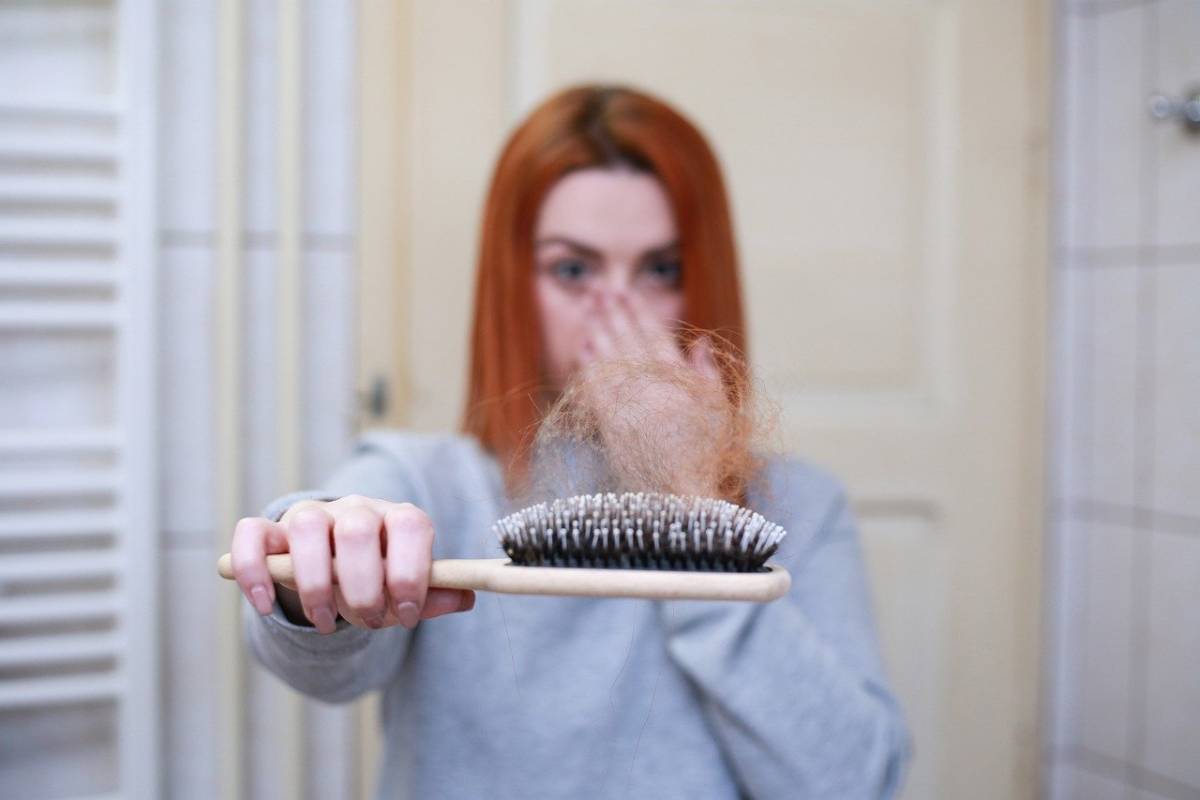Losing-hair – Hair loss is part of everyday life. Yes, it clogs your shower drain, and yes, it means you have to vacuum every other day, or your carpet turns into a shaggy rug. But the fact is, the loss of hair is perfectly normal.
On average, we lose around 80 hairs a day. If you start to lose a lot more than that or notice that they don’t grow back, well, that’s when things start to get a bit tricky (and sadly, we can’t help it).
The thing is, when it comes to hair loss, there are a lot of potential triggers, which means that it can be tricky to determine the exact reason why your strands are falling out and how to remedy the situation accordingly.
First of all, there are different types of hair loss, genetic and reactive:
Table of Contents
1.Genetic:
There is a possibility that you are genetically predisposed to thinning hair, which means that you may notice a progressive and gradual reduction in hair volume.
In these cases, certain losing-hair follicles are sensitive to male hormones. This sensitivity causes the follicles to gradually shrink and produce slightly finer and shorter hairs with each hair growth cycle.
2. Reagent:
This means that hair loss is the result of a trigger. Excessive daily hair loss (known as telogen effluvium) does not depend on having a genetic predisposition. It occurs due to an internal imbalance or discomfort, such as a nutritional deficiency, severe stress, extreme diets, or a disease.
3. Hormonal imbalance
A hormonal imbalance can lead to many pesky health and beauty problems, from acne in adults to weight gain.
If your hormones are out of whack, the effects will radiate throughout your body (and, of course, that includes your hair).
Hormones play a significant role in regulating the hair growth cycle. Estrogens (female hormones) are “friendly to the hair” and help keep it in its growth phase for the optimal period. Androgens (male hormones) are not “very friendly” with the hair and can shorten the same growth cycle.
An excess of androgens (which could be caused by an endocrine disorder, such as polycystic ovary syndrome) can cause hair loss.
The leading cause is genes: if you have a genetic predisposition to follicle sensitivity, a hormonal imbalance can affect you more than someone who does not have a bias.
4. Stress
It is not a myth that excess stress can cause your losing-hair to fall out. How does this happen? By raising the levels of androgens (male hormone), it can cause a fall. Stress can also trigger scalp problems, such as dandruff; Altering eating habits and the digestive system can hurt hair.
5. Iron deficiency/anemia
One of the most common causes of losing-hair loss in women is iron deficiency. Iron is essential for producing hair cell protein. Without it, your strands will suffer.
6. Hypothyroidism and hyperthyroidism
The thyroid gland helps regulate the body’s metabolism by controlling the production of proteins and oxygen by the tissues.
Therefore, any thyroid imbalance can affect the hair follicles. Also, if hypothyroidism is not treat, it can lead to anemia, which, as we just discussed, is another condition that can affect hair (or the lack of it).
7. Vitamin B12 deficiency
Lack of vitamin B12 can leave you feeling tired and low on energy. Sound familiar? Well, the fun doesn’t stop there. It can take a toll on your hair too.
Vitamin B12 deficiency often causes hair loss, as it can affect the health of red blood cells, which carry oxygen to tissues. It is more common in vegans, as B12 can mainly only be obtained through animal proteins.
8. Exaggerated weight loss.
A pronounced fall on the scale can affect your losing hair. While our hair is significant to us psychologically, physiologically, it is not essential; we could survive without it, without negatively exposing our physical health. This means that any nutritional deficiency often appears first in our hair.
9. Age
If you are going through or about to enter menopause, changes in your body can also affect your hair. The fall becomes more frequent before and after menopause. That being said, it is essential to realize that our hair ages, and as we age, hair naturally becomes thinner. It is a normal part of the aging process.

